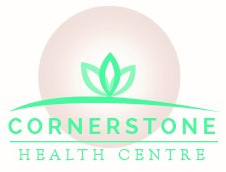Muscles and tendons and bone all demand good nutrition, most notably when they need to heal after injury. And they need even more nutritional help as we age! Everything needs a little more special attention as we age, doesn’t it?! Well, at Dr. Butwell we’re here to give that special attention to all of our Georgetown chiropractic patients and their families. From nutrition to diagnosis to treatment, Dr. Butwell is here to help.

Now, since Dr. Butwell is known for its care of spinal issues like back pain, leg pain, arm pain, and neck pain, many patients come in with those conditions that involve damaged muscle and tendons. And what do our patients want? Relief! What most of our Georgetown back pain and neck pain patients soon find is that Dr. Butwell looks at the whole person in designing the relieving treatment plan. Many Georgetown chiropractic patients will find themselves adding exercise and nutritional supplements to their lives because they enhance their sense of well-being. All Dr. Butwell asks is that our Georgetown patients consider these extras as they are presented.
So when you have a skeletal muscle injury, there is a regeneration process that takes place to repair that muscle. (1) That makes sense! Rotator cuff injury requires regenerative healing of tendon and bone. (2) Skeletal injury involves regenerative healing of muscle as well. Both depend on regeneration of tissues. That regeneration process requires communication between the immune cells and the muscle cells. These cells slow down as we age. The ability for them to regenerate damaged muscle slows down as we age. When muscle regeneration slows, sarcopenia often rears its head. It’s a leading cause of disability in elderly folks. Preventing that is a positive. A nutritional approach involving amino acids, n-3 polyunsaturated fatty acids, polyphenols and vitamin D is described in medical literature today improves skeletal muscle regeneration by targeting key functions of immune cells, muscle cells or both. (1) Dr. Butwell has some further details on these nutritional components. Just ask!
See a trend? Vitamin D deficiency. It has a negative effect on the structure of the healing tendon-bone interface (2) and potential sarcopenia development and regeneration of skeletal muscle. (1) Skeletal muscle is a direct target for vitamin D. Studies show that low levels of vitamin D slows the functional recovery of skeletal muscle, and the latest study describes a role for vitamin D in human skeletal muscle regeneration specifically. It evens suggests that optimal vitamin D levels benefit muscle repair. (3)
So contact Dr. Butwell today. A discussion of the benefits of vitamin D for healing tendons and muscles makes sense in addition to the gentle Georgetown chiropractic care offered at Dr. Butwell.
